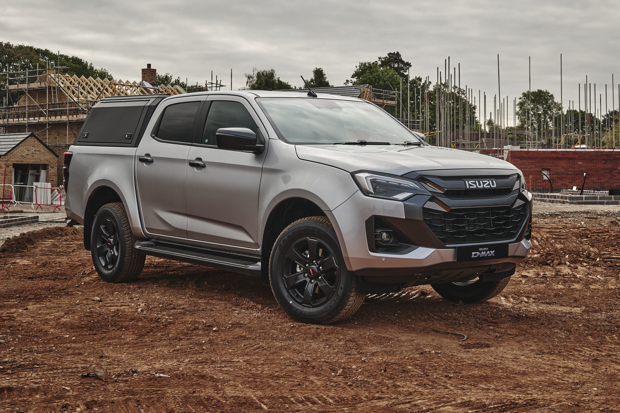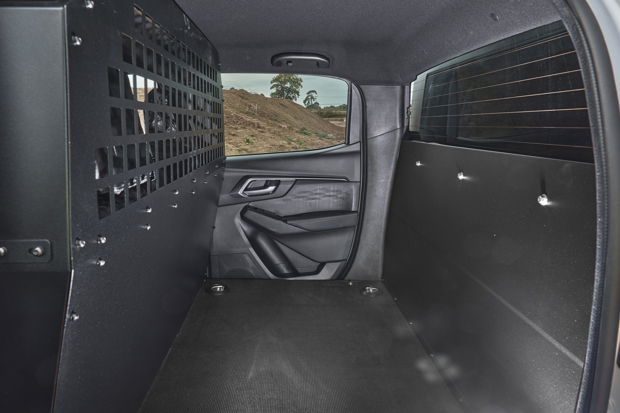Isuzu launches D-Max V-Cross Commercial double cab

A new derivative of the Isuzu D-Max Double Cab has gone on sale with full commercial status, meaning it is regarded as a commercial vehicle for Benefit-in-Kind taxation purposes.
The new Isuzu D-Max V-Cross Commercial is based on the flagship D-Max V-Cross Double Cab and has been professionally converted into a two-seater model following tax changes on double cab pick-ups introduced in April 2025.
The rear passenger space has been permanently adapted into a secure load zone, ensuring the vehicle cannot be returned to a passenger configuration.
Its commercial-ready specification includes a lightweight commercial canopy, tow bar with towing electrics, load bed liner, rear passenger door window tints and protective driver and passenger seat covers.
It is registered with DVLA under ‘N1’ classification as a light goods vehicle and carries distinctive ‘Commercial’ badging.
Although double- and extended-cabs with a payload of one tonne or more are now treated as cars for the purposes of capital allowances, Benefit-in-Kind and some deductions from business profits, the Isuzu D-Max V-Cross Commercial retains its full commercial vehicle tax status.

VAT is reclaimable for registered businesses, while road tax is kept at a fixed rate of £345. It also qualifies for Plant and Machinery Allowance under Capital Allowances, retaining 100% write-down status.
For company drivers, the model keeps its flat-rate £4020 Benefit-in-Kind for the 2025/26 tax year. It will cost company drivers in the 20% tax bracket around £67 per month and higher earners around £134.
With a kerb weight under 2040kg, it also qualifies for passenger car speed limits on dual carriageways and motorways.
It uses the same 1.9-litre turbo diesel engine as other Isuzu D-Max models, with 164bhp and 360Nm of torque. The payload is one tonne and it has a 3.5t towing capacity.
Equipment includes leather upholstery, dual-zone climate control, a 9.0-inch infotainment system with wireless Apple CarPlay and Android Auto plus a 7-inch multi-information display.
It’s also kitted out with USB-C ports and an upgraded ADAS suite, including adaptive cruise control and traffic jam assist.
All models come with a five-year/125,000-mile warranty, plus five years of UK and European roadside assistance.
The Isuzu D-Max V-Cross Commercial is available to order now priced from £41,995.


